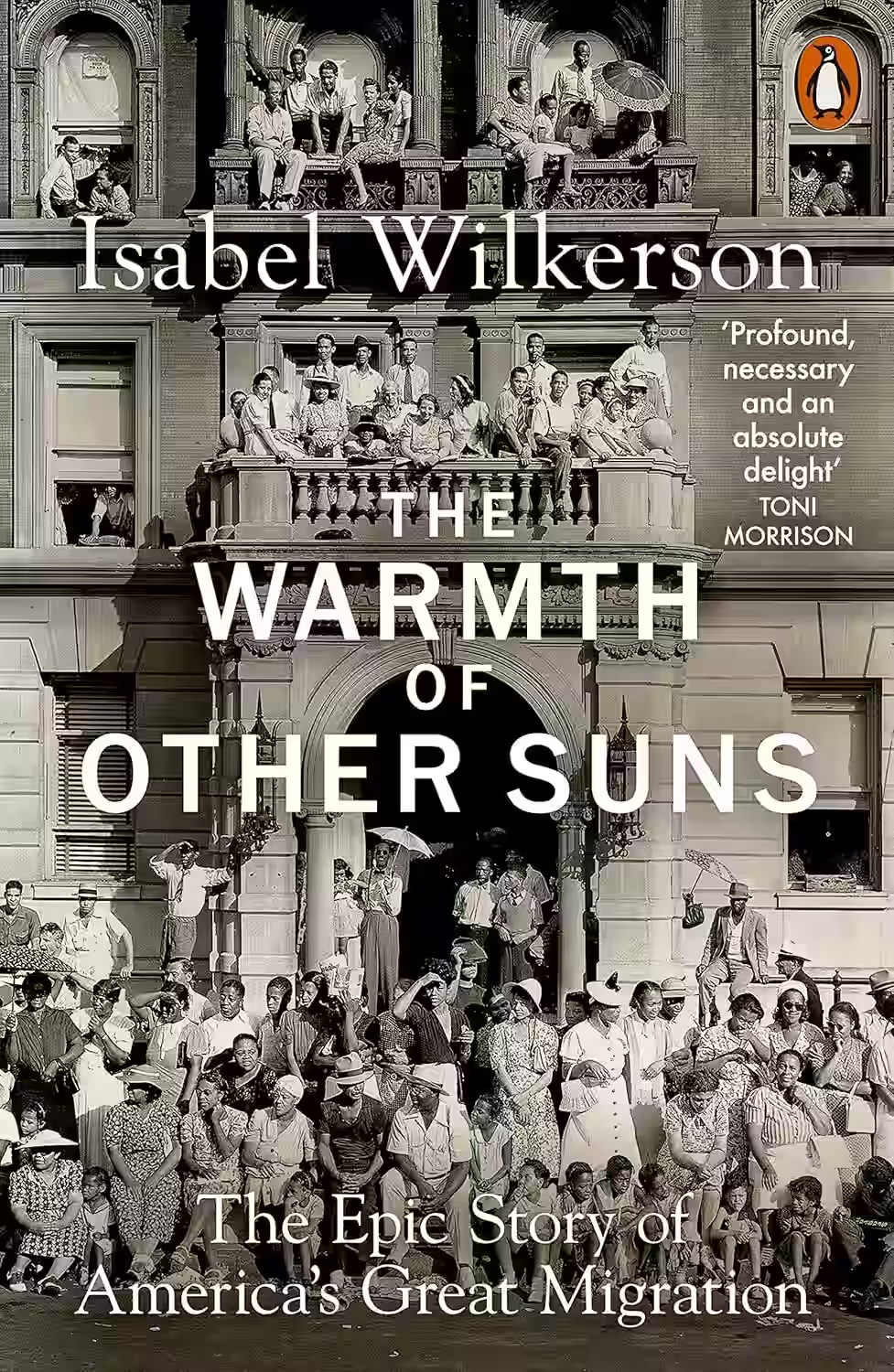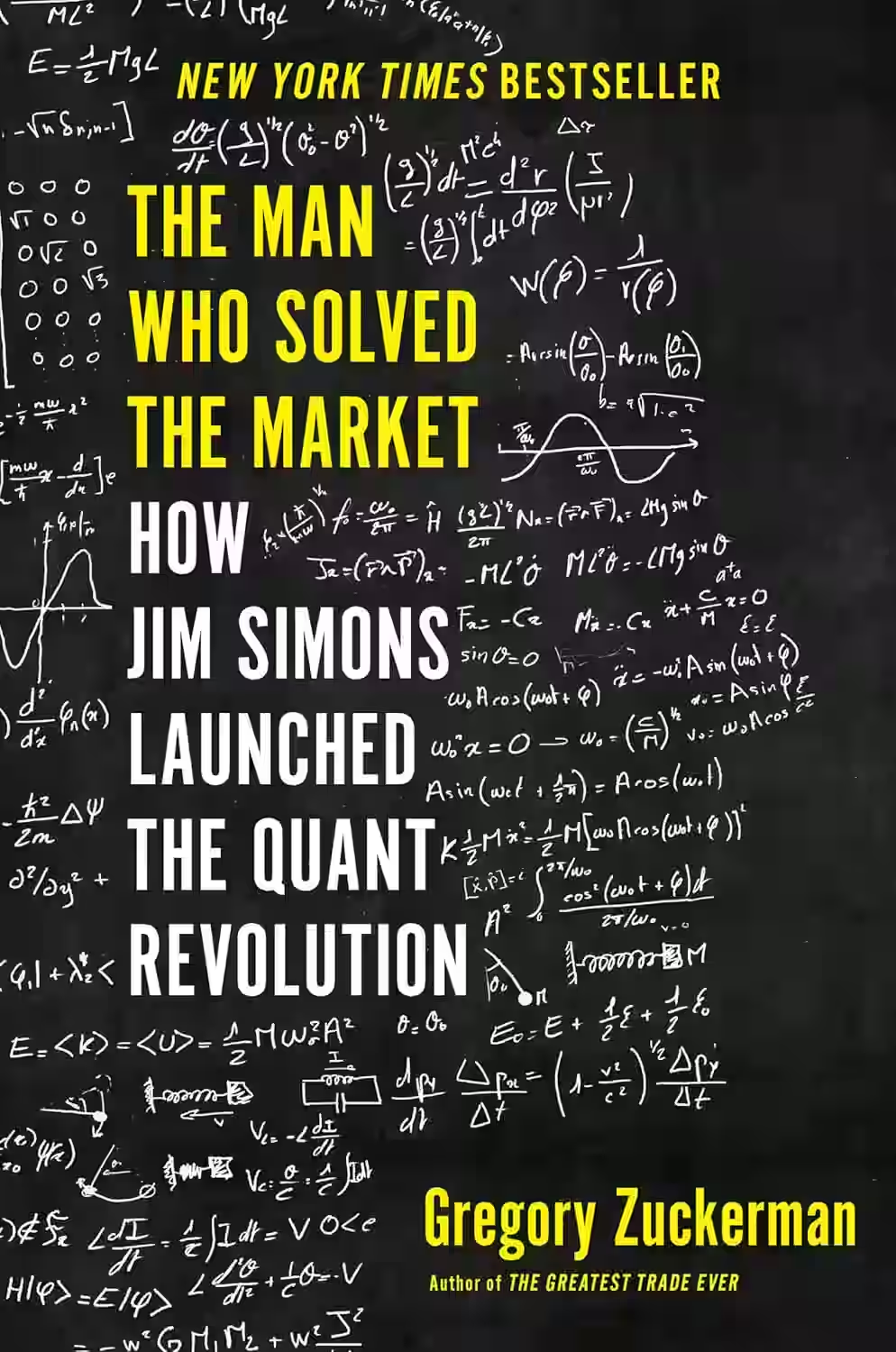
This sweeping narrative chronicles the Great Migration, the mass exodus of Black Americans from the South between 1915 and 1970. Pulitzer Prize–winning journalist Isabel Wilkerson tells this story through the lives of three individuals who left the South for new lives in Chicago, New York, and Los Angeles. Combining history, sociology, and biography, Wilkerson captures the courage and resilience of those seeking freedom from Jim Crow oppression. The Warmth of Other Suns is both deeply personal and historically expansive, shedding light on a pivotal movement that reshaped American culture, politics, and demographics across the 20th century.
About Isabel Wilkerson
Isabel Wilkerson is a Pulitzer Prize–winning journalist and author known for her deeply researched, narrative-driven histories of race and migration in America. She became the first Black woman to win a Pulitzer Prize in journalism and later authored The Warmth of Other Suns, a landmark chronicle of the Great Migration. Her follow-up, Caste, examines the hidden hierarchy of social division in the United States. Wilkerson blends journalistic rigor with literary storytelling to explore the lived experiences behind historical forces. Her work has earned widespread acclaim for its emotional depth, intellectual insight, and vital contribution to understanding systemic injustice.
Similar Books

The Man Who Solved the Market: How Jim Simons Launched the Quant Revolution
In 'The Man Who Solved the Market', Gregory Zuckerman delves into the fascinating world of finance and mathematics through the lens of legendary investor Jim Simons. The book offers readers a detailed exploration of how Simons revolutionized investing through quantitative strategies at his firm, Renaissance Technologies. Zuckerman delves into Simons' life story, the challenges he faced, and the groundbreaking techniques he employed to outsmart Wall Street. Through meticulous research and compelling storytelling, Zuckerman provides keen insights into the complexities of financial markets and the brilliance of Simons' approach. This book is a must-read for anyone intrigued by the intersection of math and money.

Ameritopia: The Unmaking of America
In 'Ameritopia: The Unmaking of America', Mark R. Levin delves into the philosophical foundations of the American political system and contrasts it with the Utopian ideologies that seek to erode individual liberties and constitutional constraints. Through a powerful blend of historical analysis and contemporary commentary, Levin investigates the dangers of centralized power, societal control, and the disregard for natural rights. Drawing parallels between the Founding Fathers' vision and the current political landscape, 'Ameritopia' serves as a thought-provoking exploration of the ongoing struggle between liberty and tyranny. With meticulous research and compelling arguments, Levin challenges readers to reflect on the significance of preserving the American principles of limited government and individual freedom.

Some People Need Killing
In this harrowing and deeply reported memoir, journalist Patricia Evangelista documents Rodrigo Duterte’s brutal war on drugs in the Philippines. Drawing from years of firsthand reporting, Evangelista chronicles the violence, propaganda, and moral disintegration that defined a nation’s descent into authoritarianism. Through vivid narratives of victims, enforcers, and survivors, the book becomes a powerful indictment of state-sponsored killings and a meditation on fear, complicity, and resistance. Some People Need Killing is both a work of fearless journalism and a profoundly personal reckoning with truth and accountability in the face of terror.

The Right Stuff
by Tom Wolfe
In 'The Right Stuff' by Tom Wolfe, readers are thrust into the exhilarating world of test pilots and astronauts during the early days of the Space Race. The book delves into the psyche of these fearless men, exploring themes of courage, ambition, and the relentless pursuit of greatness amidst life-threatening challenges. Wolfe's narrative paints a vivid picture of the astronauts' bravery and the complex dynamics within the exclusive world of space exploration. With a riveting blend of history and storytelling, 'The Right Stuff' immerses readers in the high-stakes drama of America's quest for the stars, offering a compelling insight into the human spirit and its boundless capacity for extraordinary feats.